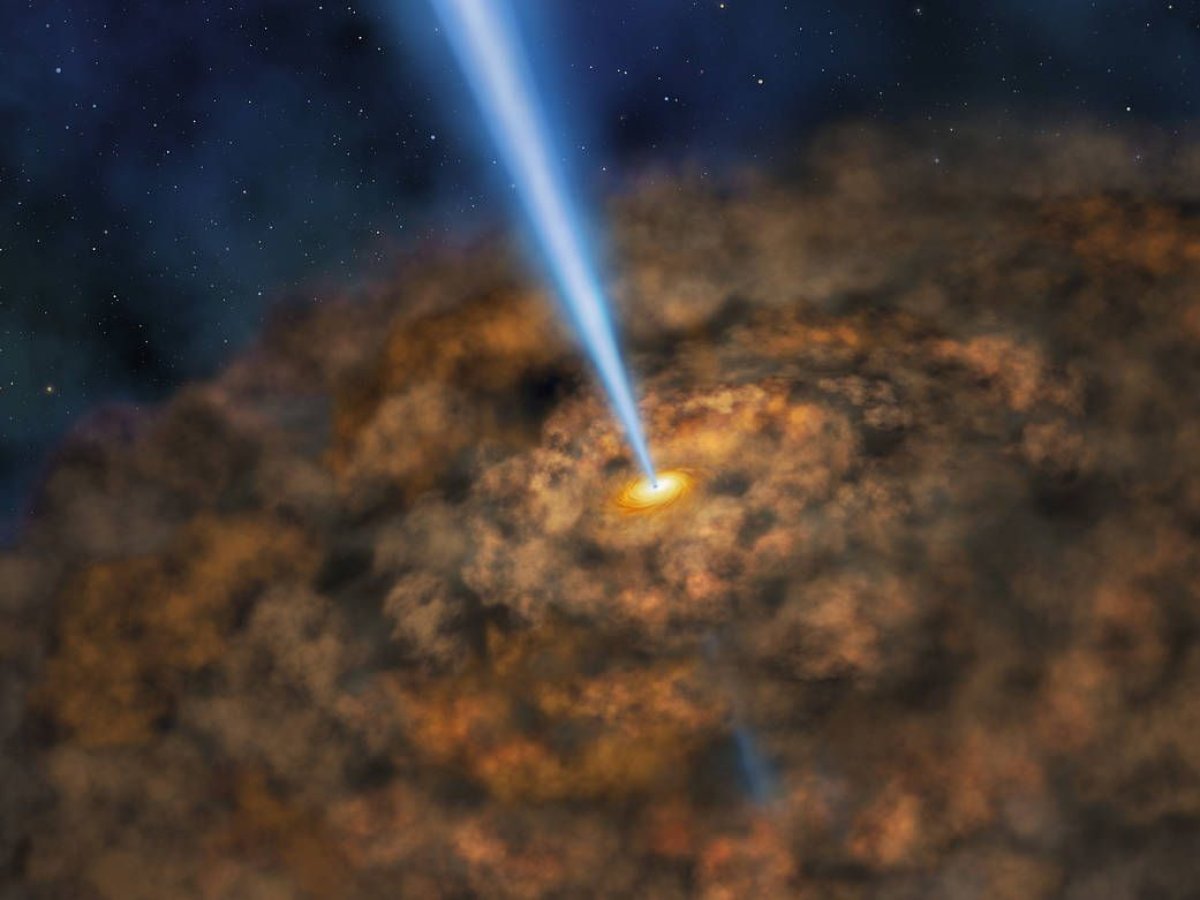Primordial black holes that formed just after the Big Bang may have emerged as the result of quantum fluctuations as the universe was inflating, a team of cosmologists has suggested.
In a study published in Physical Review Letters, researchers from Europe and China have proposed a new way for primordial black holes to exist and, if correct, would mean all of these hypothetical objects have roughly the same mass.
A major mystery about the universe currently facing scientists is how black holes were able to form shortly after the Big Bang. Traditionally, we think of black holes as forming from massive stars collapsing in on themselves. This happens at the end of a star's lifetime, often billions of years after it first formed.
But what we call 'primordial' black holes—which emerged just after the Big Bang—would not have had long enough to grow that big. So where could they have come from?
Dong-Gang Wang, from Leiden University, and colleagues from the University of Science and Technology of China, have now proposed a new theory for their existence. They say that after the Big Bang, there were small perturbations from random quantum fluctuations in the universe. Within these perturbations, they identified a resonance effect that makes primordial black holes possible.

Want told Newsweek: "Resonance is a phenomenon in the oscillation system where the amplitude could be amplified. A familiar example is a playground swing, which acts as a pendulum. Pushing a person in a swing in time with the natural interval of the swing [its resonant frequency] makes the swing go higher and higher [maximum amplitude], while attempts to push the swing at a faster or slower tempo produce smaller arcs. This is because the energy the swing absorbs is maximized when the pushes match the swing's natural oscillations.
"In our study, resonance occurs in cosmological perturbations in the early Universe, which amplified the amplitudes such that primordial black holes could form."
Because the primordial black holes are only possible within a certain frequency of the perturbation, they should all have roughly the same mass.
The theory is not without limitations. Wang acknowledges that the study is a starting point for more detailed research. "Modern inflationary cosmology tells us that all the stars, galaxies and clusters in the Universe come from the random quantum fluctuations," he said. "But in the standard treatment, those fluctuations are still too small to form black holes. That's why we need resonance to enhance them."
Uncommon Knowledge
Newsweek is committed to challenging conventional wisdom and finding connections in the search for common ground.
Newsweek is committed to challenging conventional wisdom and finding connections in the search for common ground.
About the writer
Hannah Osborne is Nesweek's Science Editor, based in London, UK. Hannah joined Newsweek in 2017 from IBTimes UK. She is ... Read more
To read how Newsweek uses AI as a newsroom tool, Click here.








